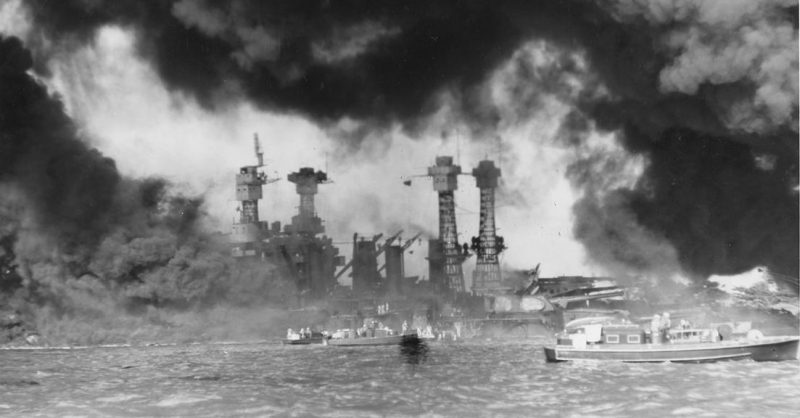The Japanese attacked Pearl Harbor on December 7, 1941. Herman Zuckerman was there, but he never spoke very much about what he experienced. Instead, family members pieced together the story of his experiences that day by talking to others who knew him. Like others from his generation, he kept to himself and avoided the spotlight.
Zuckerman passed away recently, just days before the 75th anniversary of the attack at Overlook Medical Center in Summit, NJ. Veterans are returning to Pearl Harbor this week to mark the anniversary. There are far fewer veterans returning this year than came back for the 50th anniversary in 1991.
“Members of the Greatest Generation – their population is declining. Hundreds die each day,” said Molly Graham, oral historian and archivist. She works as an assistant director for the Rutgers Oral History Archives.
The Rutgers project has collected hundreds of oral histories from New Jersey residents and Rutgers alumni since 1994. The subjects range from politics and science to culture and technology. They have recordings from veterans of three wars, former POWs, veterans of Guadalcanal and Pearl Harbor survivors.
According to Graham, hearing about history from someone who witnessed it is the most powerful way to learn about it. Time is running out, though, to get the stories from those who fought in World War II. Several of those who agreed to talk about Pearl Harbor have died since their interviews.
“It’s impossible to get someone’s life story when they’re no longer with us,” Graham said. “Doing the interview ensures their life story lives on.”
Veterans do not often offer to tell their story, and it’s typically a relative that convinces them to share their war stories and personal experiences. According to Graham, the interview for the archives is often the first time they’ve talked about their past with anyone. You can find out more about the project, and even read some of the transcripts here.
Zuckerman’s story is not in the Rutgers archives. He was a private man who did not like being in the limelight. His name is on a plaque in Union Center that honors local Pearl Harbor survivors, and he was a member of the Pearl Harbor Survivors Association, but he never sought attention.
He joined the Marines two years prior to the war’s beginning because he wanted to travel and be adventurous. Zuckerman, a former police officer in Newark, was in Pearl Harbor with the USS Helena for six days before the attack. They were only there for a stopover, he said.
According to Zuckerman’s son, Henry Donnerstag, Zuckerman was on shore playing a dice game when the attack started. They thought it was a drill, until they were shot at. They dove under a truck until the first lull came in the attack. That’s when they learned the truck was full of weapons and ammunition.
Alan Zuckerman is another of Zuckerman’s sons. He said that most of what he learned about his father’s time in the service was learned from other men he served with. Alan tried to get him to go back to Pearl Harbor for the 50th anniversary, but his father refused.
Alan knows that his father fought on that day. He knows a story about his father pulling a .50 Caliber machine gun from the truck they had hidden under. He set it up on a crate and began shooting back at the enemy. He didn’t know if he hit anything, but he returned fire.
His detachment served in the Pacific for the war. Zuckerman spent the entire war in the Solomon and Marianas islands. He was in line to be in the first invasion wave of Japan before the atomic bomb ended the war.
After the war, Zuckerman served in the Newark Police Department. He went back to school and graduated with a degree in political science from Rutgers in 1973 at the age of 52. He was known as “Doc” in the force because of the number of babies he delivered during his 42 years of service, NJ.com reported.
He never traded in his .38 caliber police revolver for the newer 9mm semi-automatic pistols that became standard equipment in the force. It wasn’t an issue, though, he never fired it once.
